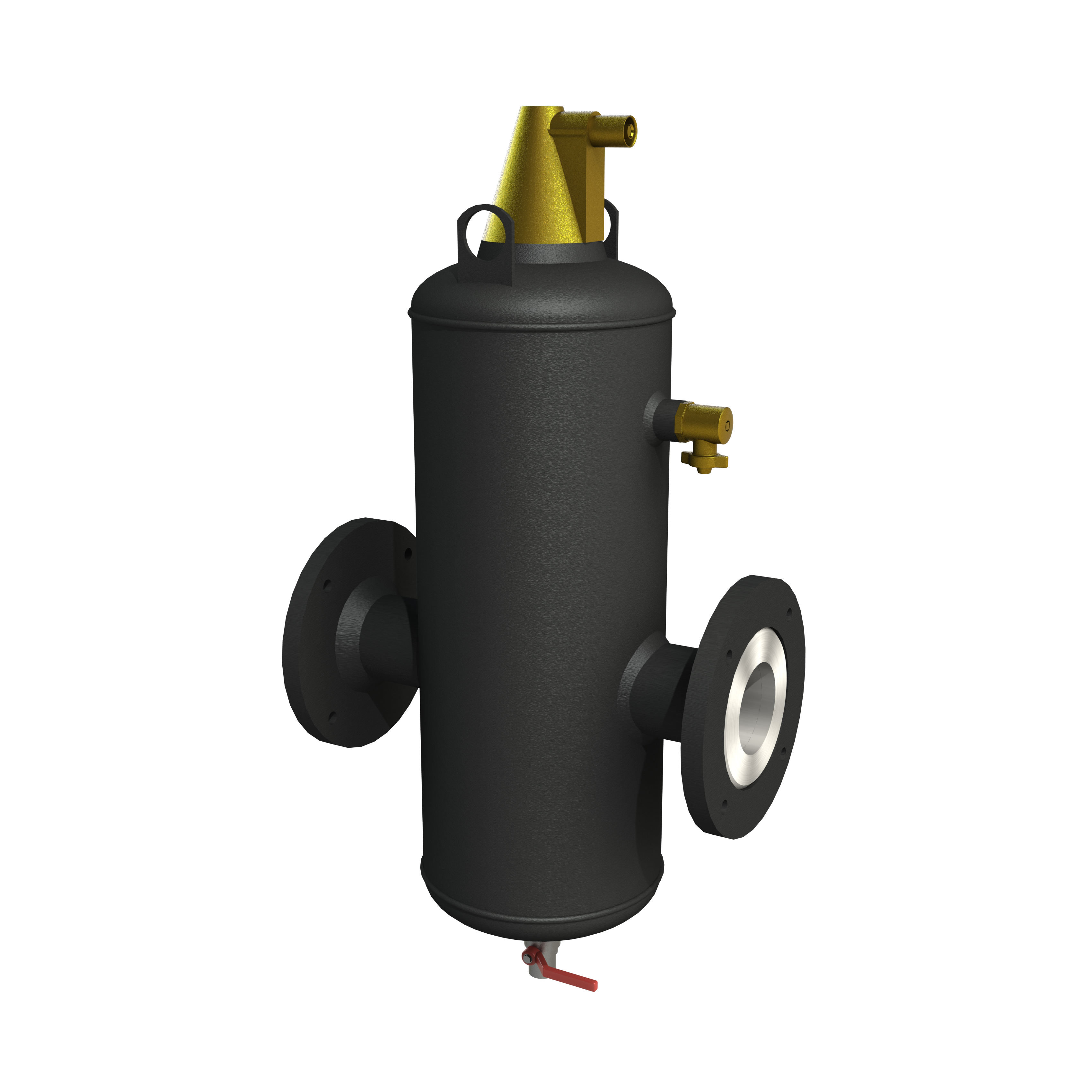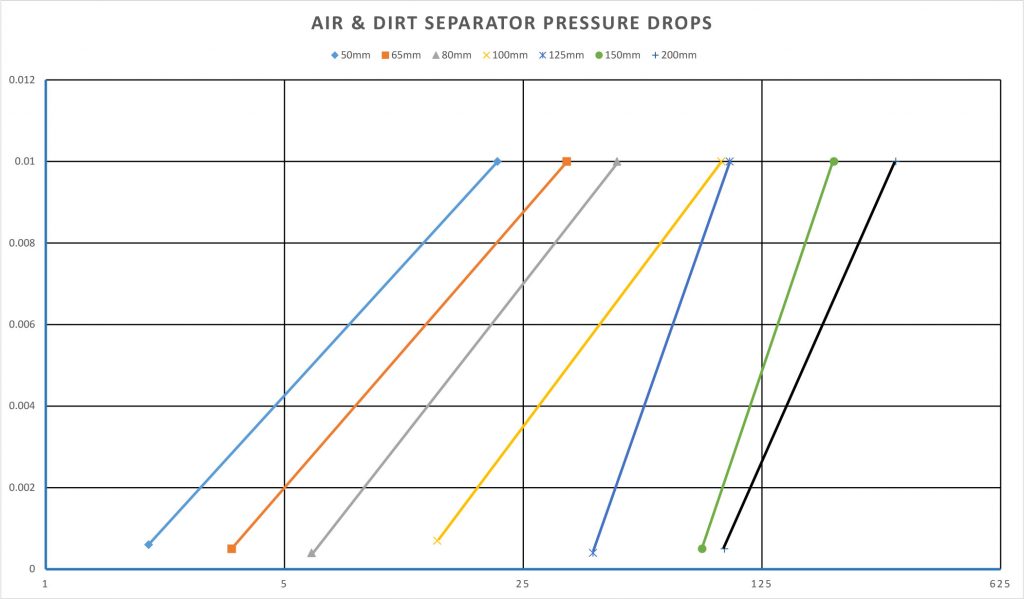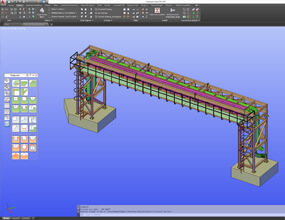Selection
DST offer a complete range of air and dirt separators. Check that the correct separator has been selected for the operating conditions that exist. To enable efficient air and dirt removal the separator should be line size.
Location
1. Micro Bubbles are easily released from circulating water where the highest temperature and lowest pressure conditions occur in the system
2. The separators should normally be fitted where water is at the highest temperature and the lowest pressure available.
3. The examples shown below are typical installation layouts, but other acceptable and efficient locations for the separator exist.
4. When selecting the position for the separator please be aware that pressure also has a major effect on the release of micro bubbles.
5. For temperatures normally found within heating systems a one metre drop in head pressure is equivalent to a rise in temperature of four degrees centigrade.
6. Where lower temperatures are involved in cooling applications system pressure becomes the determining factor of the position of the separator.
7. DST air and dirt separators should be installed in horizontal pipework, the direction of flow is optional.
Installation
1. Automatic air vent and isolation valve should be fitted to the top of the separator,
2. Commissioning valve on the side
3. Drain valve on the base as shown in the illustration at the top of this page.
4. To protect the automatic air vent the isolation valve should be closed prior to flushing the system.
5. Flexible hose or fixed pipework should be installed to enable dirty water to be drained to a convenient safe place.
Maintenance
1. Automatic air vent should be checked periodically to ensure it is functioning correctly.
2. To prevent sediment build up and maintain efficiency the separator should be flushed at regular intervals.
3. Dirt sludge and solid particles can be removed by opening the drain valve on the base of the separator until the water runs clear.
WARNING To prevent scalding safe practice must be observed when venting hot water at pressure.








